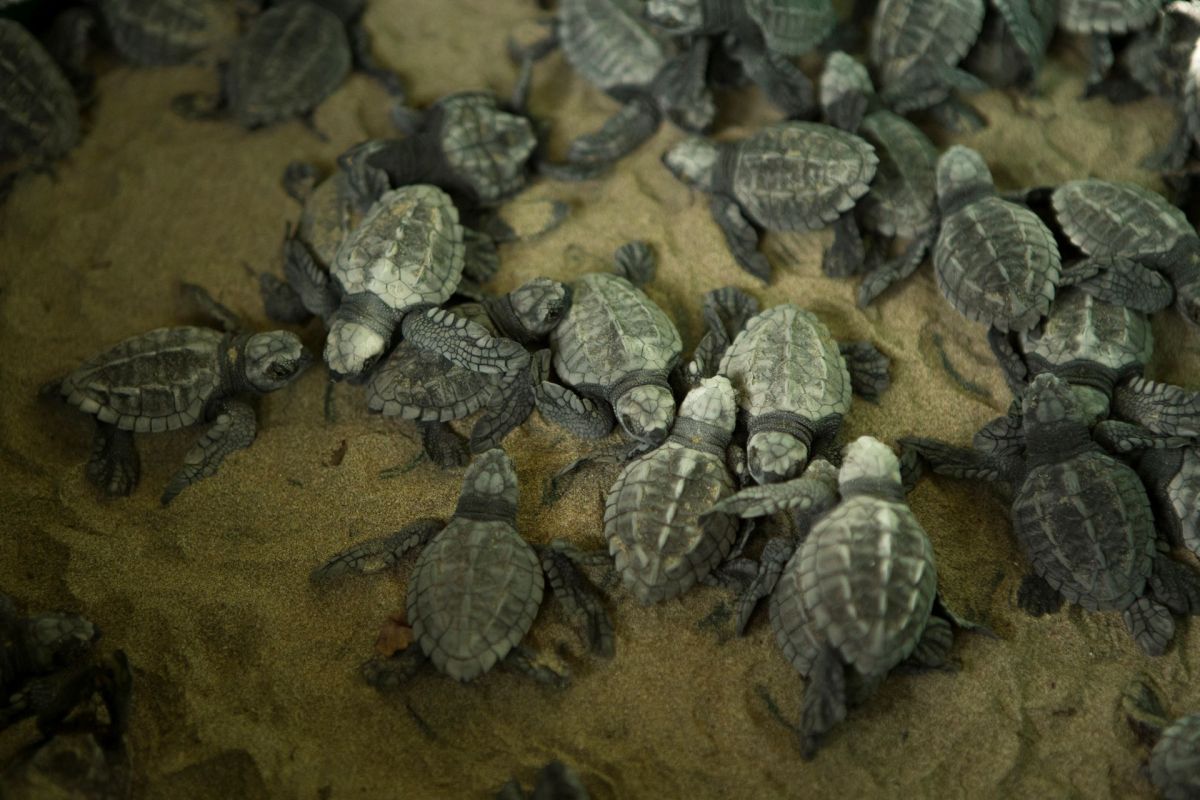There is good news on the horizon for one of the world's smallest and most vulnerable sea turtle populations, thanks to the help of some highly effective conservation efforts.
A recent survey by Nature Conservation Management (NACOM) reported a 30% increase in olive ridley turtle eggs on the Bangladeshi islands of Pachar, Shilkali, and Shahpari since 2022, Mongabay reports. This trend — which is a record for turtles in the area — follows a 22% increase in the number of eggs found on the island in 2021.
There has been a direct correlation between the number of eggs found on the islands and conservation efforts undertaken by non-governmental organizations (NGOs), volunteers, and the Bangladeshi government.
So far, the government has set up five conservation centers in Cox's Bazar, a coastal district popular with olive ridleys during nesting, which is when their eggs can be incubated and hatched. The Bangladeshi government has also set up designated nesting regions for the turtles to haul up on shore. Both of these measures were made to increase the turtle's chance of survival — and so far, it's showing promise.
The olive ridley turtle is currently listed on the International Union for the Conservation of Nature's (IUCN) Red List. This designation is for species with a high risk of extinction due to human and environmental threats. The tiny turtle is one of over 150,000 species on the organization's radar and among the 42,000 at imminent risk of extinction.
Particular risks to the olive ridley and the four other turtle species that frequent Bangladesh's beaches include increasing tourist traffic and development on the beach and ensnarement in offshore fishing nets. According to the Bangladeshi Department of Environment, the number of sea turtles that died from fishing nets has also decreased from 48 in 2019 to 12 during the first six months of 2020.
Sarwar Alam, divisional forest officer for the Cox's Bazar region, told Mongabay that conservation stories like these could help protect more vulnerable populations in the long run.
"There is no alternative [to] public awareness to prevent disruption of sea turtle breeding," Alam said.
Join our free newsletter for cool news and cool tips that make it easy to help yourself while helping the planet.









